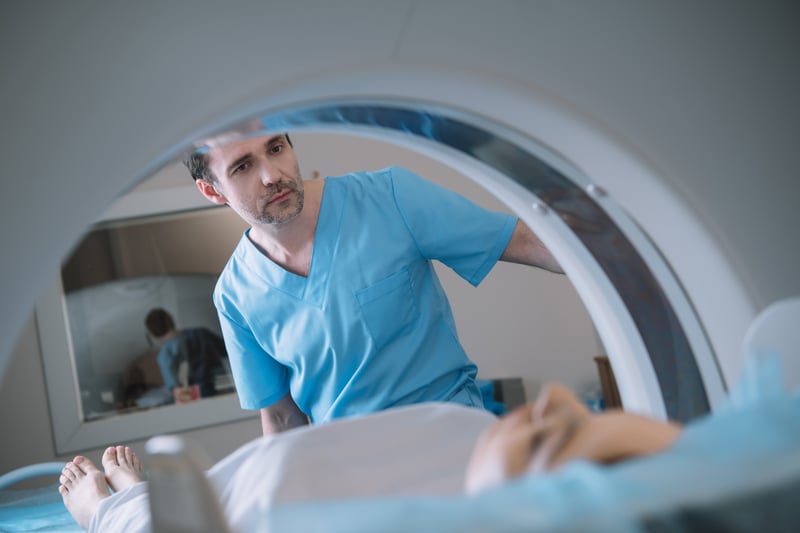Get Healthy!

- Amy Norton
- Posted May 23, 2023
CT Scans Beat Gene Scores at Predicting Mid-Life Heart Risk
When it comes to predicting heart trouble down the road, the arteries may say a lot more than the genes do, according to a new study.
Researchers found that CT scans of the heart arteries were better than genetics at predicting middle-aged adults' risk of heart disease in coming years.
In fact, people's genes gave little useful information over and above low-tech methods, such as measuring blood pressure.
Experts said the findings -- published May 23 in the Journal of the American Medical Association -- do not write off a role for genetic tests in gauging heart disease risk, particularly in relatively younger people.
But for now, they said, CT scans -- which detect calcium deposits in the heart arteries -- remain the better tool.
Doctors have long used certain factors to estimate the likelihood that a middle-aged or older person will develop coronary heart disease in the next 10 years. Those factors include the usual suspects, like high blood pressure, unhealthy levels of "bad" cholesterol, diabetes and smoking.
But oftentimes, those estimates land people in an "intermediate" risk zone, which means there may be uncertainty about whether they should start statin medication or take other preventive steps.
For those people, doctors often recommend a CT scan to look for calcium deposits in the heart arteries.
Calcium is a component of the "plaques" that clog the arteries of people with coronary heart disease. Calcium scores -- which range from zero to infinity -- correlate with a person's risk of having a heart attack or other cardiovascular "event" in the next decade.
But in recent years, there have been questions about whether people's genes could provide a similar outlook. Many different gene variants have been associated with heart disease risk, and researchers have developed so-called polygenic risk scores that, like the calcium score, correlate with the odds of developing heart trouble.
On the plus side, genetic risk scores require only a blood sample, said Dr. Sadiya Khan, the lead researcher on the new study.
While the coronary calcium scan is fairly simple, it does involve a small radiation dose, said Khan, a cardiologist at Northwestern University Feinberg School of Medicine in Chicago.
Until now, though, there had been no head-to-head comparison of the two tests' predictive potential. And, Khan said, the calcium scan emerged as the clear winner.
For the study, researchers used data on 3,200 U.S. and Dutch adults ages 45 to 79, who were followed for up to 17 years. All had their traditional heart risk factors measured, underwent CT scans and gave blood samples.
During the study period, about 9% of participants developed or died from coronary heart disease.
Overall, the study found, calcium scores improved risk prediction when they were added to traditional measurements. In fact, Khan said, calcium scores moved half of the study participants into the "high risk" zone.
In contrast, the polygenic risk score added no helpful information to what doctors can already glean with old-fashioned measurements.
"This study shows that the best test we can offer is the coronary artery calcium score, not the genetic score," said Dr. Ron Blankstein, a preventive cardiologist at Brigham and Women's Hospital in Boston, and chair of the American College of Cardiology's Cardiovascular Imaging Council.
Blankstein, who was not involved in the study, pointed to a fundamental difference between the tests: CT scans detect actual signs of early artery disease, while blood tests give an idea of genetic risk.
But lifestyle and environment are so important in heart disease, Blankstein said, that this may limit the predictive power of genetic risk scores.
Dr. Roger Blumenthal, a cardiologist at Johns Hopkins University in Baltimore, said that about half of middle-aged and older patients fall into the intermediate-risk bucket. And it's important to have a way to better define their odds of developing heart disease.
"Some people resist taking medication until you prove to them there's disease," said Blumenthal, who helped craft the current American College of Cardiology/American Heart Association (AHA) guidelines on heart disease prevention.
"Coronary artery calcium is the best tiebreaker we have when you're on the fence," he said.
Blumenthal added, though, that research into polygenic risk scores should continue. They may be more useful for younger patients, Blumenthal said. (While the current study included people in their 40s and 50s, many were older.)
As for coronary calcium scans, they are widely available in the U.S. -- though access in rural areas may be limited, Blumenthal noted.
Costs can range from $100 to $400, according to the AHA, but many medical centers advertise them at under $100. Insurance plans, however, often do not cover the scans.
More information
The American Heart Association has more on coronary calcium scans.
SOURCES: Sadiya Khan, MD, assistant professor, medicine and preventive medicine, Northwestern University Feinberg School of Medicine, Chicago; Ron Blankstein, MD, associate director, cardiovascular imaging program, Brigham and Women's Hospital, professor, medicine, Harvard School of Medicine, Boston, and chair, Cardiovascular Imaging Council, American College of Cardiology, Washington, D.C.; Roger Blumenthal, MD, director, Johns Hopkins Ciccarone Center for the Prevention of Cardiovascular Disease, professor, medicine, Johns Hopkins University School of Medicine, Baltimore; Journal of the American Medical Association, May 23, 2023




